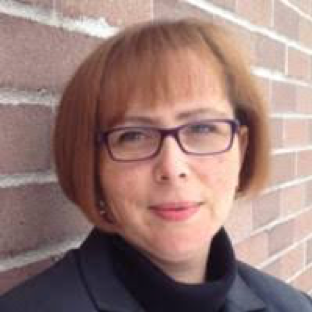A Conversation About Career Development with Dr. Catherine Maybrey
AUTHOR: Lisa Dyce

Dr. Catherine Maybrey is the Career Integration Specialist in the Faculty of Science’s Careers & Co-op Office. As part of her role, Catherine supports graduate students throughout their career development, a process which she once experienced firsthand as a graduate student.
Catherine completed her MA in History at McMaster, followed by her PhD in Public and American History at Loyola University Chicago. After graduating in 2005, she left her network of colleagues in Chicago and ‘waffled’ for a few years with no concrete idea of her career goals nor how to obtain them. She shared that at that time, career planning information and career coaching services were not easily accessible to graduate students. In 2010, Catherine was working at McMaster’s Alumni Office when she became friends with a fellow career coach who helped her realize her interests and strengths. She researched positions and conducted informational interviews, describing how the experience of exploring careers led to a ‘light turning on’. Once she realized her career goal, she identified gaps in her expertise and completed a postgraduate diploma before joining the Faculty of Science as the Career Integration Specialist (Careers & Co-op Office).
Catherine is passionate about offering guidance and support to students at all stages of their graduate training and career development. In the past year, she has developed the Faculty of Science Individual Development Plan (IDP) workshop series to help science graduate students discover their own ‘career lightbulb moments’. She recently rolled out the IDP workshop series in science departments and programs across campus, including the Neuroscience Graduate Program.
What is an ‘Individual Development Plan (IDP)’?
Individual Development Plans (IDPs) started in the business sector as part of employees’ yearly performance reviews. Through the IDP, employees would be prompted to recall and reflect upon their previous year’s work to summarize what they had accomplished, identify their strengths, and outline steps for future development. Now, the IDP is widely utilized by universities to help graduate students identify and actively prepare for their career goals.
While most university IDP programs are accomplishment-based, the Faculty of Science IDP program is uniquely designed to help individuals recognize and place value in the skills they have gained throughout their graduate training, identify areas for further development and growth, and outline specific goals for meeting their career development needs. Importantly, the IDP focuses on the needs of the individual graduate student, rather than those of the program or institution.
What does participation in the Faculty of Science IDP workshop series involve?
The IDP workshop series is a commitment, albeit an invaluable one. In order to get the most out of the program, participants are strongly encouraged to attend all five workshops over the course of the academic year. These hour-long workshops feature activities that prompt self-assessment and reflection, guide career exploration and goal setting, facilitate mentorship, and support the structuring, revision, and refinement of a career development plan.
One of the greatest strengths of the workshop series is its emphasis on both learning with and learning from others. The workshops are all personally facilitated by Catherine, with extra guidance in the form of drop-in office hours, encouraging emails, and a comprehensive Avenue course shell. Workshop participation involves engaging with and learning from peers through small group discussions. Each workshop session is then followed by individual reflection and exploration as participants work through questionnaires, surveys, and helpful resources.
Who might benefit from the IDP workshop series?
The program is beneficial for individuals at any stage of their career development. Catherine explained that we all have our own unique frames of reference based on past and current experiences. The IDP workshop series encourages us to consider opportunities outside of our comfort zones by facilitating awareness of our strengths and interests. Even if we have specific careers in mind, participating in the IDP workshop series can bring greater awareness of what this career looks like, as well as the specific steps we can take to ensure success in achieving our career goals.
Catherine highlighted the importance of ‘doing your own leg work’ with support from others. When it comes to career development, we need to be proactive. Graduate school is the perfect time to explore interests, career options, and professional development needs. We have unique resources available to us as graduate students, such as the support from on-campus career development professionals, that we need to make use when they are most beneficial to us. Catherine clearly highlighted the importance of accessing these resources in a timely manner: she encourages graduate students to ‘run, don’t walk’ to our careers office to learn more about supports that can help us realize and achieve our career goals.
Where can you find out more?
For more information about career supports and IDP programs that may be available to you through McMaster, please visit the Faculty of Science Careers & Co-op Office at www.science.mcmaster.ca/scce/contact/contact-us.html,or stop by their office in BSB 127 to book an appointment and pick up career-related resources. The Canadian Institutes of Health Research (CIHR) also offers a variety of IDP resources that you can work through independently. To utilize these resources, visit http://cihr-irsc..